World Cup Countdown: 17 Weeks to Go - Alcides Ghiggia, the Man Who Silenced the Maracanã
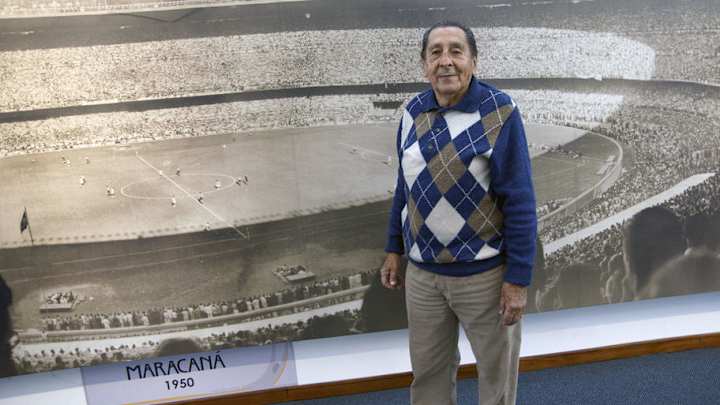
Scorer of the winning goal in the 1950 World Cup, Alcides Ghiggia's name is etched into footballing history as the player responsible for completing one of the sports most unlikely comebacks.
The Uruguayan winger's goal not only helped overturn a one goal deficit, it helped his country become the first winners of the competition under the revised format of a second round-robin group stage.
Even more surprising, was the defeating of the much heralded Brazil, who had dominated all and sundry in the competition. The tournament hosts had scored 13 goals against Sweden and Spain in the two proceeding group games, opposition that had troubled Ghiggia's Uruguayan side.
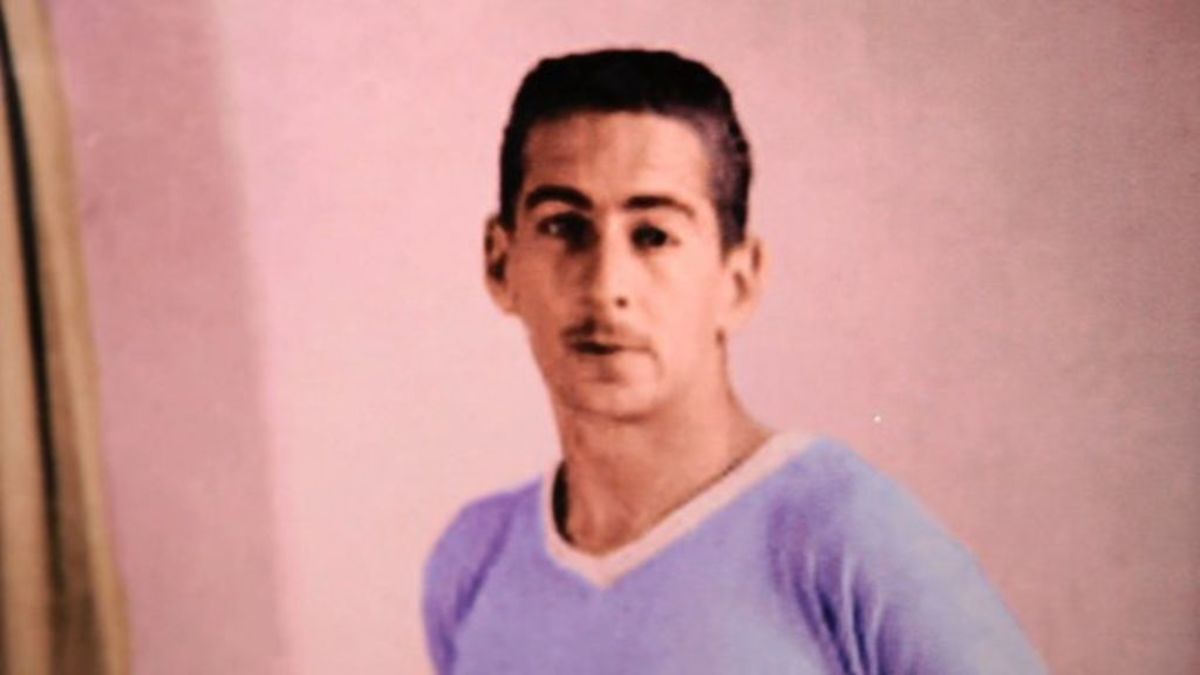
(You may also be interested in 'World Cup Countdown - 17 Weeks to Go: 'Maracanazo', the Day Uruguay Silenced the Samba')
Ghiggia's goal, ten minutes from time, propelled the winger into footballing stardom, in a startling turn of events that had seen his international career flourish in a remarkably short period of time.
Born in Montevideo in 1926, Ghiggia enjoyed a middle class upbringing in a time when poverty was rife among his generation. He began his footballing career in 1944, joining lower league side Sud América. After learning the game and breaking through into the first-team ranks, he moved on to a short spell with Progreso, before joining boyhood idols Peñarol in 1948.
He established himself as a key player at the Estadio Campeón del Siglo in 1949, after his first season at the club was disrupted by a players' strike, that ultimately led to the championship being abandoned. He scored eight goals as the Aurinegros marched towards the league title, seeing off nearest challengers and great rivals Nacional by six points.
On this day in 1926, Alcides Ghiggia was born.
— Warriors of Uruguay (@UruguayanHeroes) December 22, 2017
Ghiggia is famous for scoring the winner in the 1950 World Cup final against Brazil, making Uruguay four-time world champions. pic.twitter.com/knkwRUB0Gz
(You may also be interested in 'World Cup Countdown: 17 Weeks to Go - How the Superga Air Disaster Changed the 1950 Tournament')
Up until that point, Ghiggia had failed to earn international recognition, though that was to change as he joined the Uruguay team for the 'Copa Rio Branco' matches against Brazil in early 1950. He played in all three matches, earning himself a call-up into their World Cup squad for the tournament to be held in Brazil.
The unique nature of the tournament saw the Uruguayans drawn against Bolivia and France in a three team group, though the French would soon drop out due to financial constraints. This left Uruguay to face their South American foes in a straight knockout game, with the winner to advance to the round-robin final alongside three other teams.
A mauling of sorts would ensue, as Uruguay dismantled Bolivia 8-0 in Belo Horizonte, in a match attended by just over 5,000 supporters. Ghiggia scored the final goal of the contest, as his side wrapped up the easiest of passages through to the final stages, joining Spain, Sweden and Brazil.
#AlcidesGhiggia scored 4 goals for Uruguay in the 1950 tournament, scoring in every match Uruguay played in during the 1950 World Cup! #Uruguay2018 pic.twitter.com/q53iemDY9D
— La Celeste Blog (@lacelesteblog) February 13, 2018
(You may also be interested in'World Cup Countdown: 17 Weeks to Go - Brazil's Prolific Nearly Man, Ademir')
It is at this stage of the competition that Ghiggia began to cement his name into World Cup folklore, as he put in a string of sensational performances. Facing up to Spain in their opening encounter, Uruguay would share the spoils with their European adversaries, as Ghiggia scored in a 2-2 draw. He would repeat the feat just four days later, grabbing the equalising goal towards the end of the first half against Sweden.
The Uruguayans would complete the turnaround late in the second period, as Óscar Míguez's late double salvo earned Uruguay a hard fought 3-2 win. In amongst the obvious adulation though, came the realisation that a miracle would be needed in the final group game to overcome an unbelievably strong Brazil side.
Just three days later, in front of a reported crowd of almost 200,000 at the Maracana, the stage was set for the destiny of the World Cup. The Brazilians had been in rampant form throughout the tournament, and now needed only a draw to get their hands on the trophy. The Uruguayans needed to win to overhaul their rivals in the group, though victory seemed a forlorn hope.
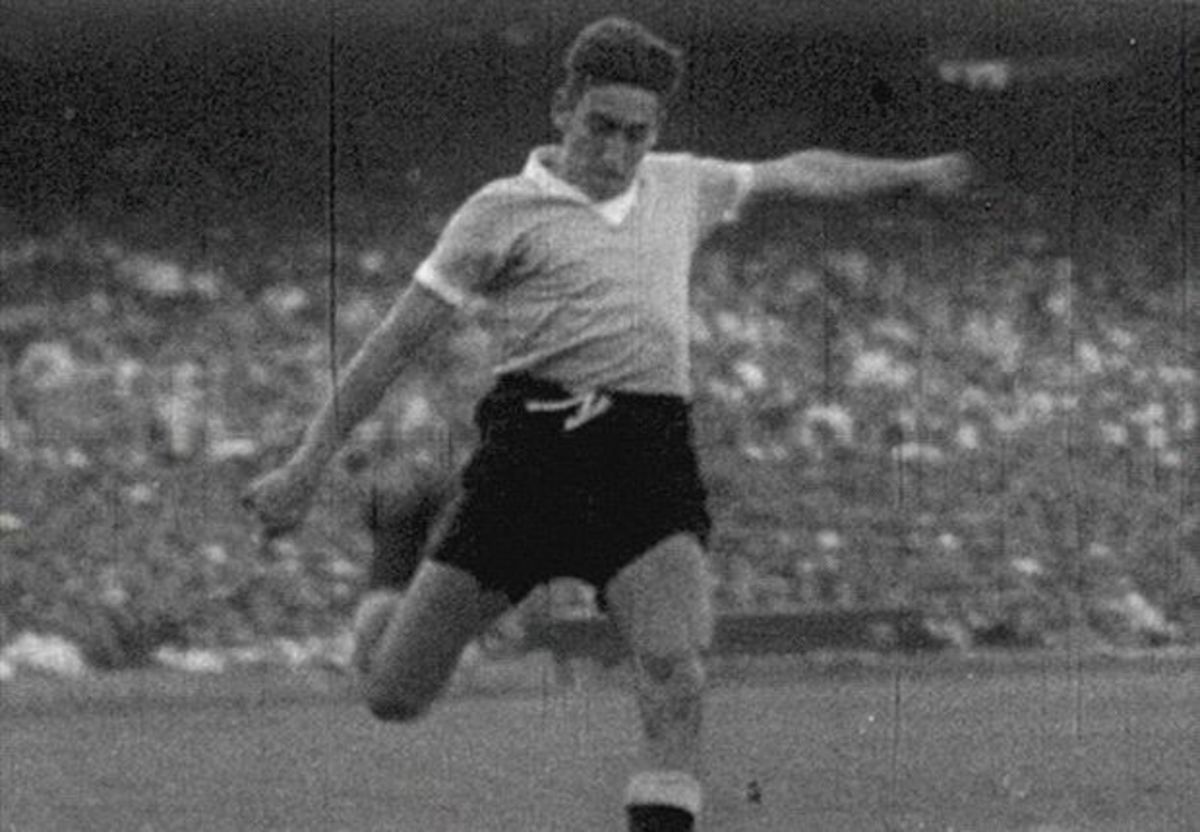
Ghiggia and his Uruguayan teammates seemed a little overawed as the game got underway, with Brazil dominating possession whilst fashioning the best chances. They had to wait until the start of the second half to take a deserved lead though, with Sao Paolo forward Friaça firing the Brazilians in front.
What would transpire then, would be one of the most talked about performances in World Cup history. Spurred on by inspirational skipper Obdulio Varela, the underdogs fought back to equalise through Juan Alberto Schiaffino, with Ghiggia assisting the striker with a perfectly cushioned square ball.
Ghiggia would then go on to write his name into the history books, cunningly firing past Brazilian goalkeeper Moacir Barbosa at his near post thirteen minutes later, to seal Uruguay's second Jules Rimet trophy. Ghiggia's winning goal would see him become the first player in history to score in every game for a World Cup winning side, a feat that has only been matched by Jairzinho in subsequent years.
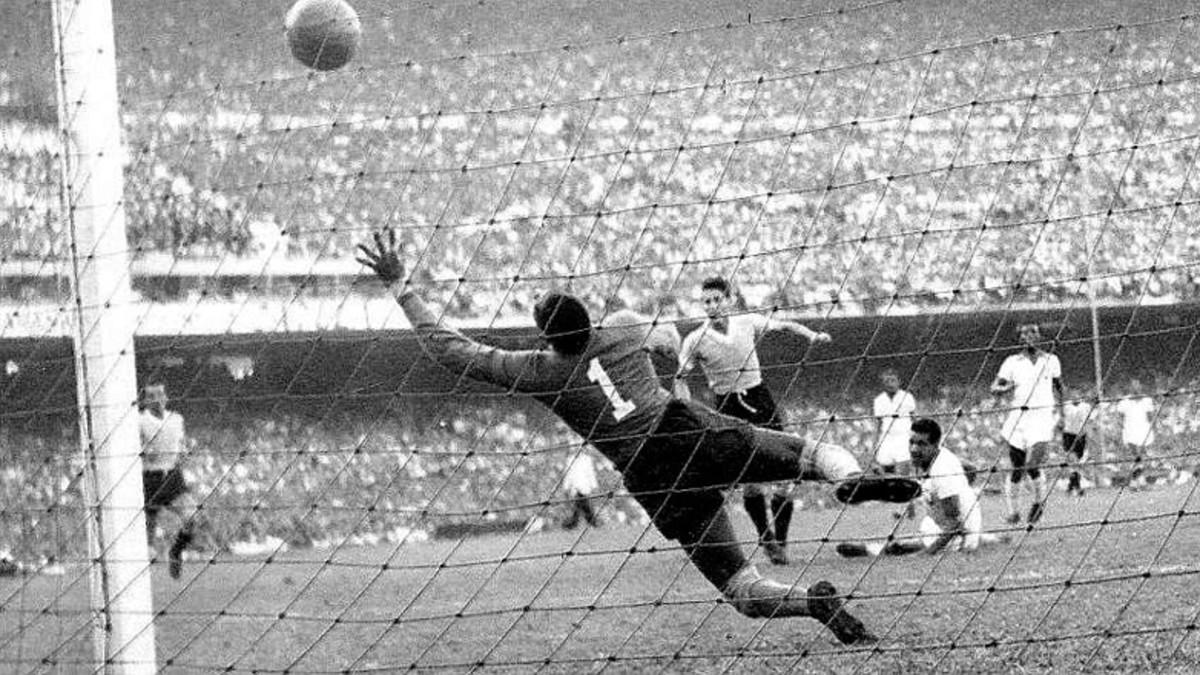
“There was complete silence. The crowd was frozen still. It was like
they weren’t even breathing.” Alcides Ghiggia.
With the pinnacle of his international career reached, Ghiggia would transition back into club life at Peñarol, winning the league title once more in 1951. Aged just 26, he was set for a bright and prosperous career in his homeland, until he received an eight-month ban for assaulting a match official. The ban would completely alter the course of his career, with Ghiggia failing to represent Uruguay again.
He would leave the country and move on to Italian giants Roma in 1953, where he would establish himself as a fans favourite for the next eight years. Ghiggia made over 200 appearances for the Giallorossi, scoring 19 times but never replicated his trophy laden spell at Peñarol.
Having settled in Italy alongside Schiaffino, the duo earned international call-ups as Gli Azzurri seeked to qualify for the 1958 World Cup. He would make five appearances for his adoptive country, with his solitary strike would not be enough to earn qualification, as defeat to Northern Ireland ended their dreams. His international career ended there, though Ghiggia would go on to play a solitary season for AC Milan, before moving back home to play for Uruguayan side Danubio.
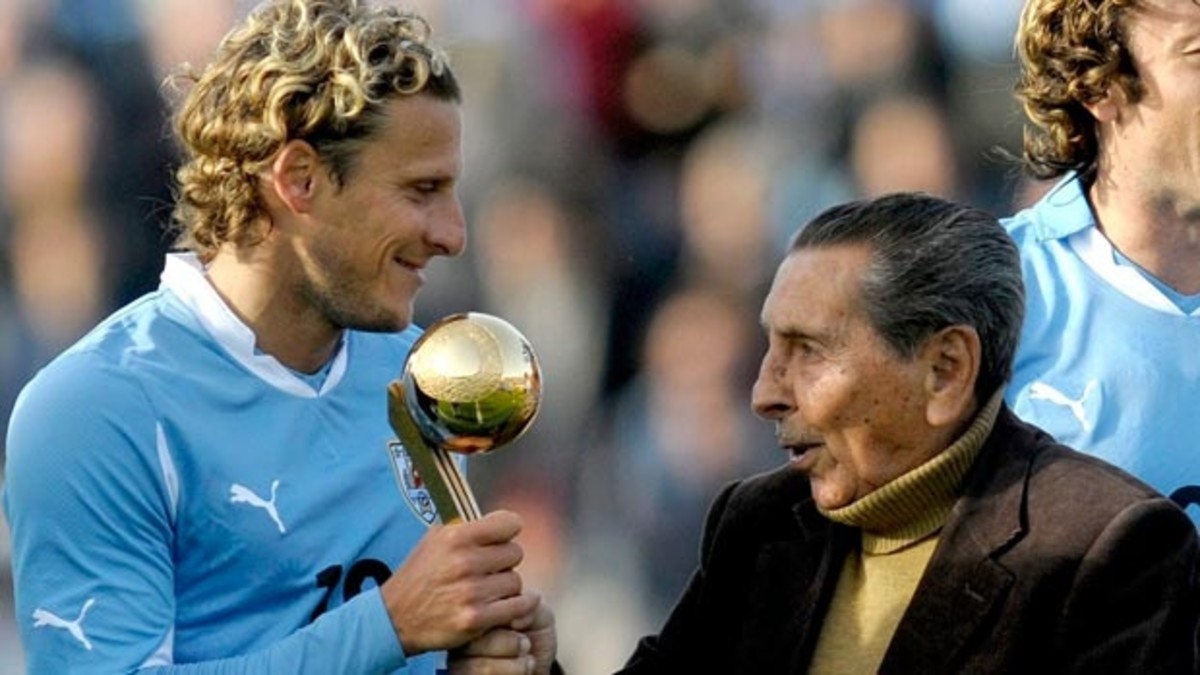
He spent six seasons there before finally deciding to hang up his boots in 1968, just a few days before celebrating his 42nd birthday. His post-football career would include a short spell as manager of Peñarol, though his decision to sell his World Cup medal due to financial difficulties is perhaps how his post-football career will best be remembered.
That aside, his legendary status amongst the game is secured, with Ghiggia among the elite names featured in FIFA's prestigious Order of Merit.
